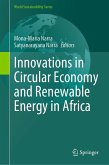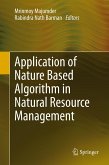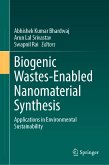On the other hand, environmental biotechnology and marine biology are fundamental to address environmental challenges. Research on treating effluents from the dairy, textile, and mining sectors seeks solutions to reduce water pollution. Industrial waste valorization through biotechnology aims to decrease pollution and resource depletion. The production of bio-products, biomaterials, bioplastics, and biofuels offers sustainable alternatives with a lower carbon footprint. Marine biology focuses on understanding and conserving aquatic ecosystems in the face of climate change and human influence. Biotechnology also contributes to the sustainable use of national biodiversity, with applications in pharmaceutical, cosmetic, and agricultural industries. These multidisciplinary fields are advancing towards a more sustainable and environmentally friendly future. The conference proceedings will consist of original research articles, reviews, and short communications covering several types of renewable energies: Solar including photovoltaic cells or solar thermal systems, Wind, Hydropower, Biomass-based energy, Geothermal, Waves Energy, Hydrogen, Bioenergy, or energy from biological processes, and fuel cell systems. In addition, studies focused on Environmental Biotechnology, including Bioremediation, Bioenergy Production, Microbial Fuel Cells, Waste Valorization, Microplastic Biodegradation, Biodegradable Materials and Phytoremediation, as well as focused on Marine Biology, including Marine Biodiversity and Conservation, Marine Genomics, Ocean Acidification, Marine Ecotoxicology, and Marine Biotechnology and Microbiology. Other environmental areas of research can be also included such as industrial wastewater systems or the development of sustainable solutions for a healthier and more resilient environment.
Dieser Download kann aus rechtlichen Gründen nur mit Rechnungsadresse in A, B, BG, CY, CZ, D, DK, EW, E, FIN, F, GR, HR, H, IRL, I, LT, L, LR, M, NL, PL, P, R, S, SLO, SK ausgeliefert werden.









